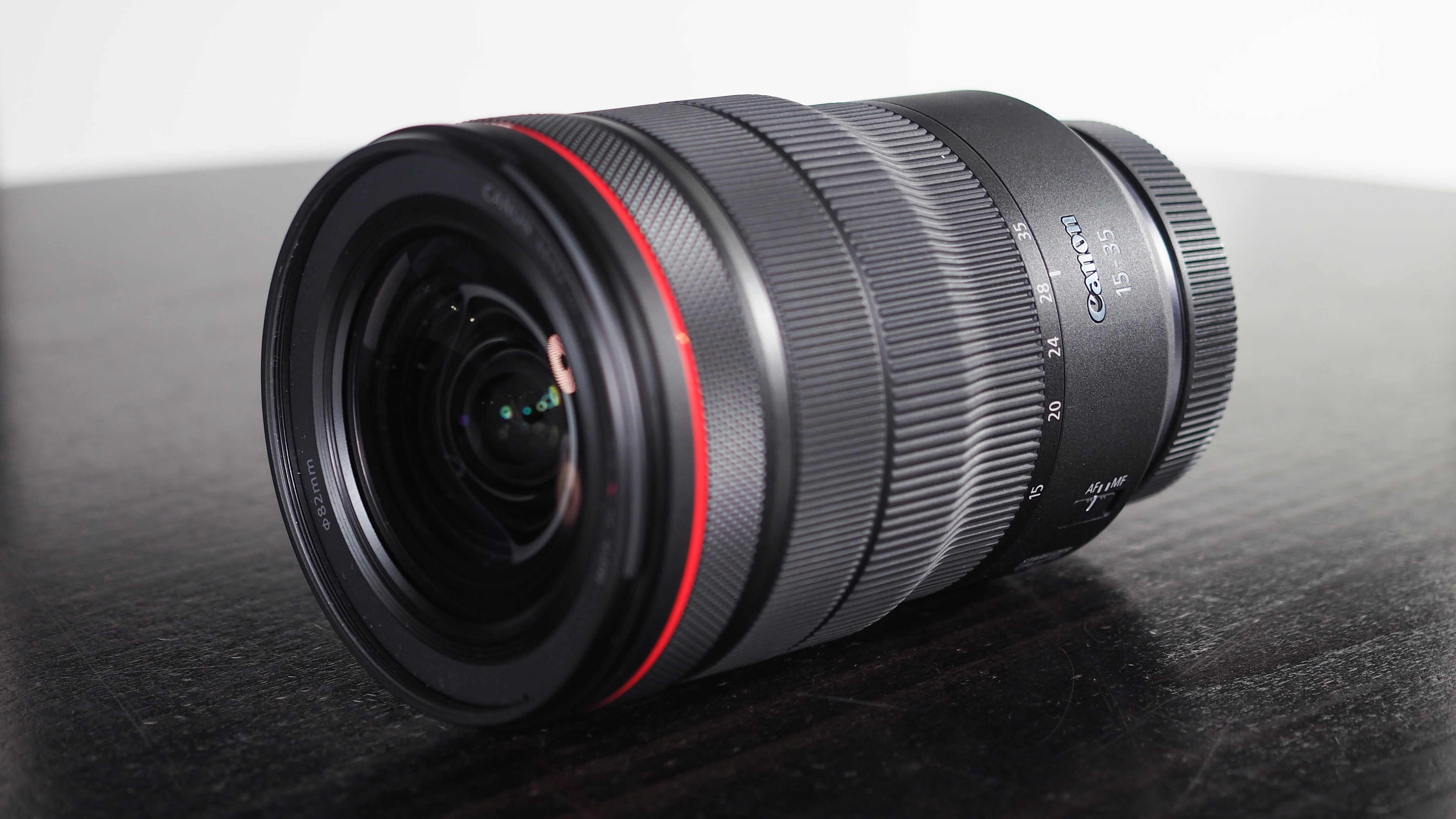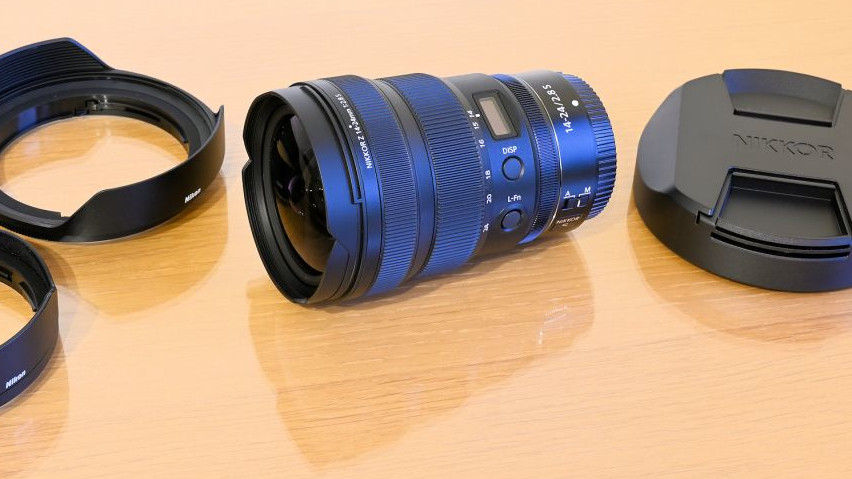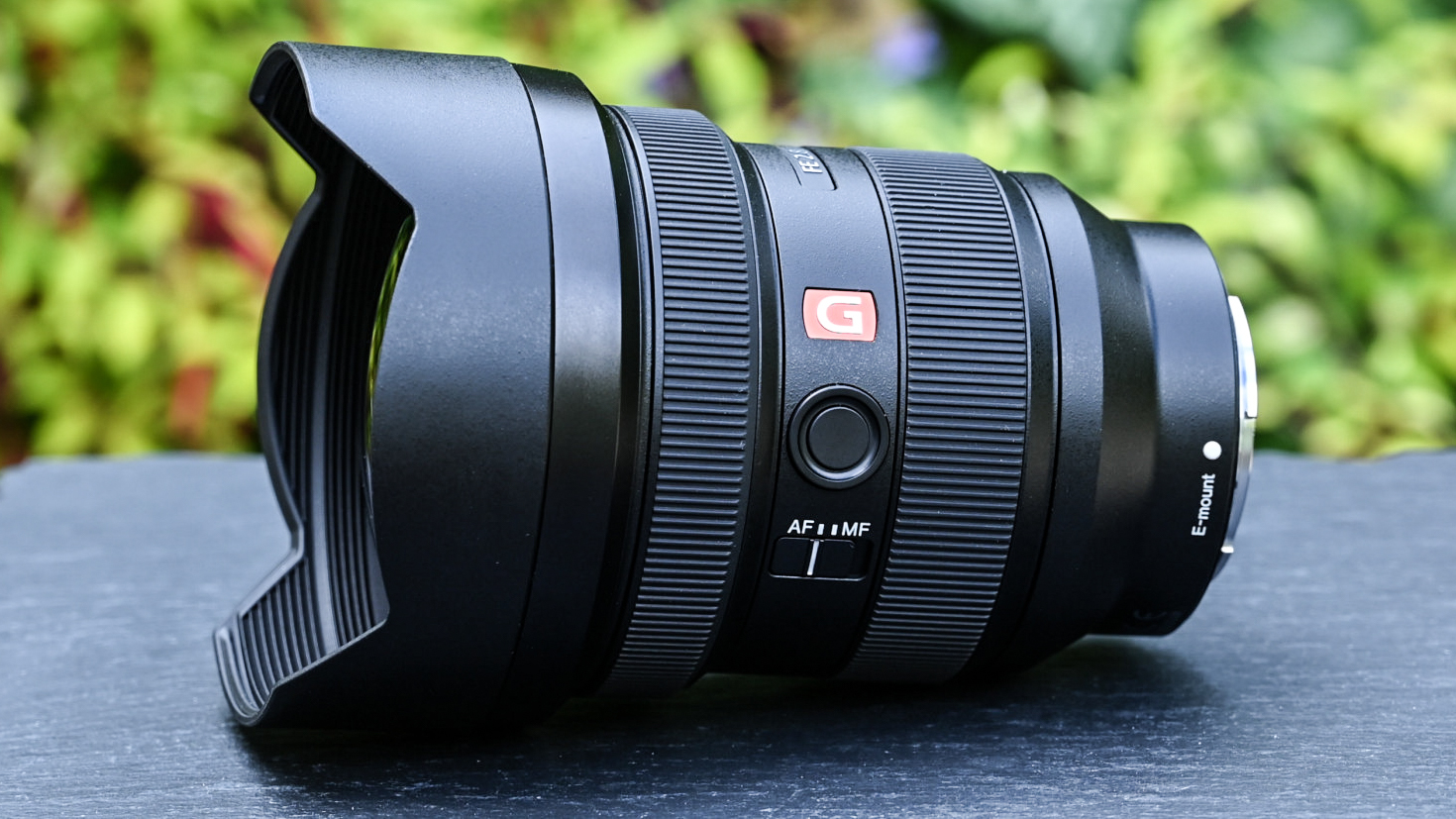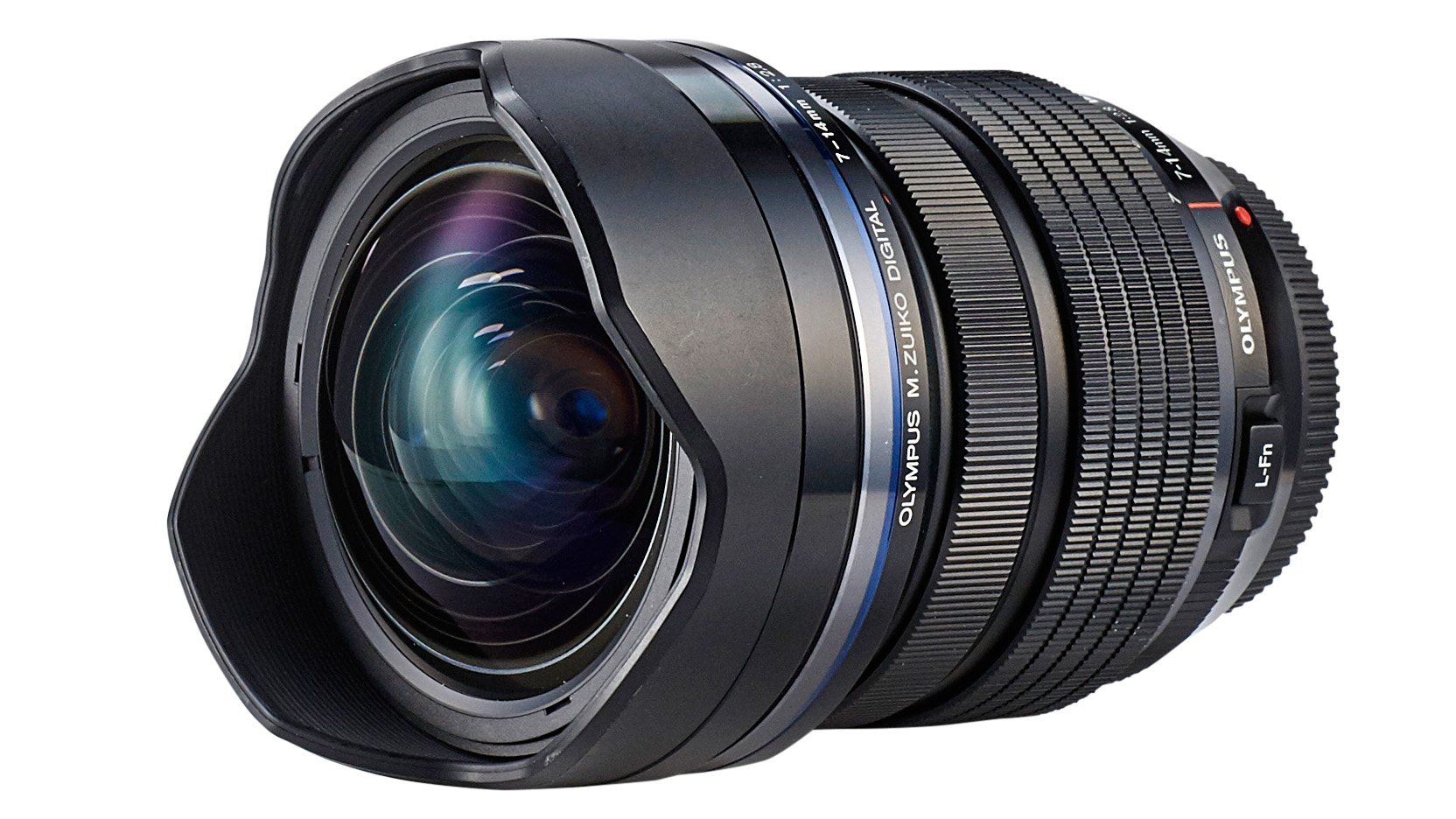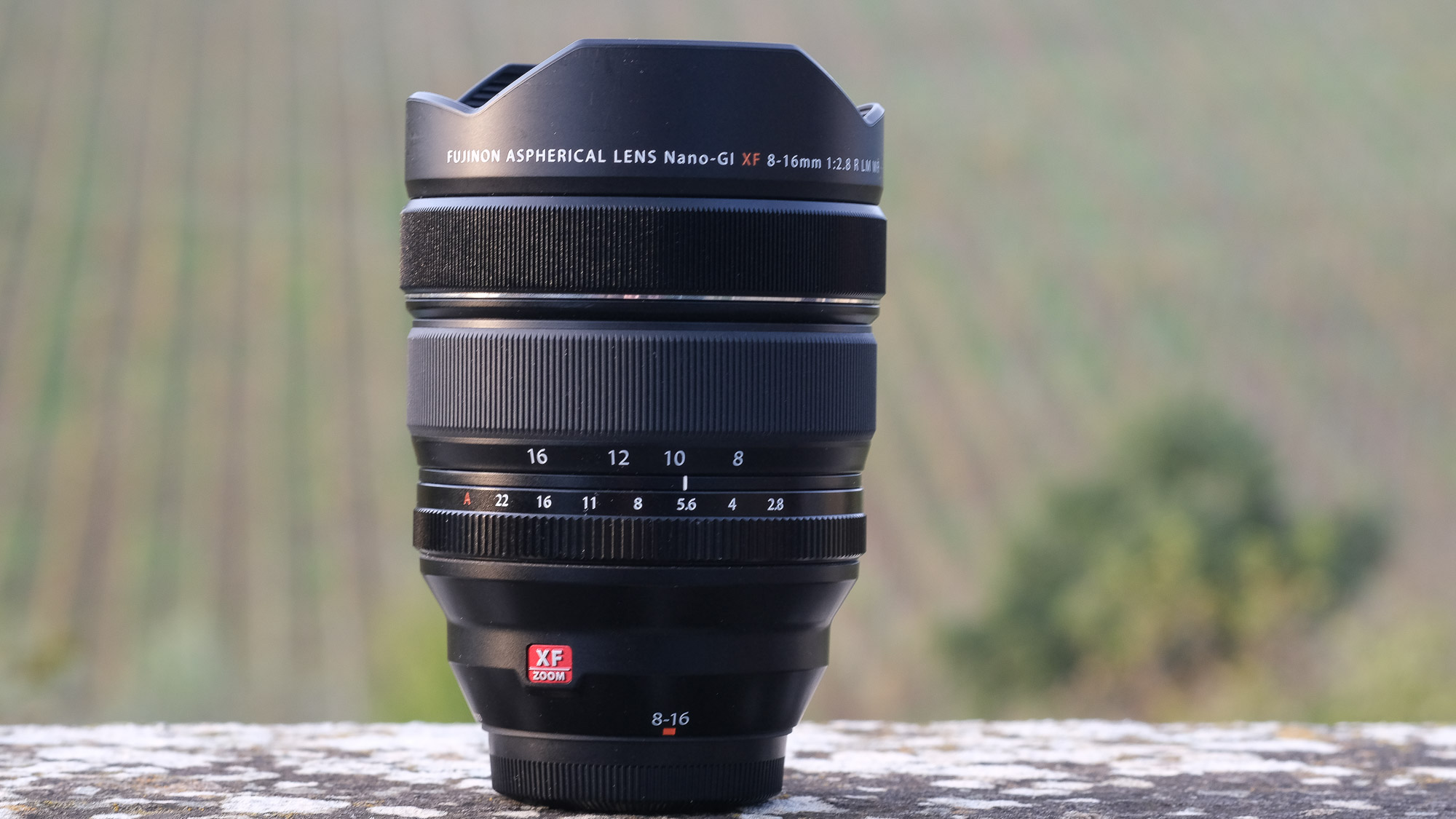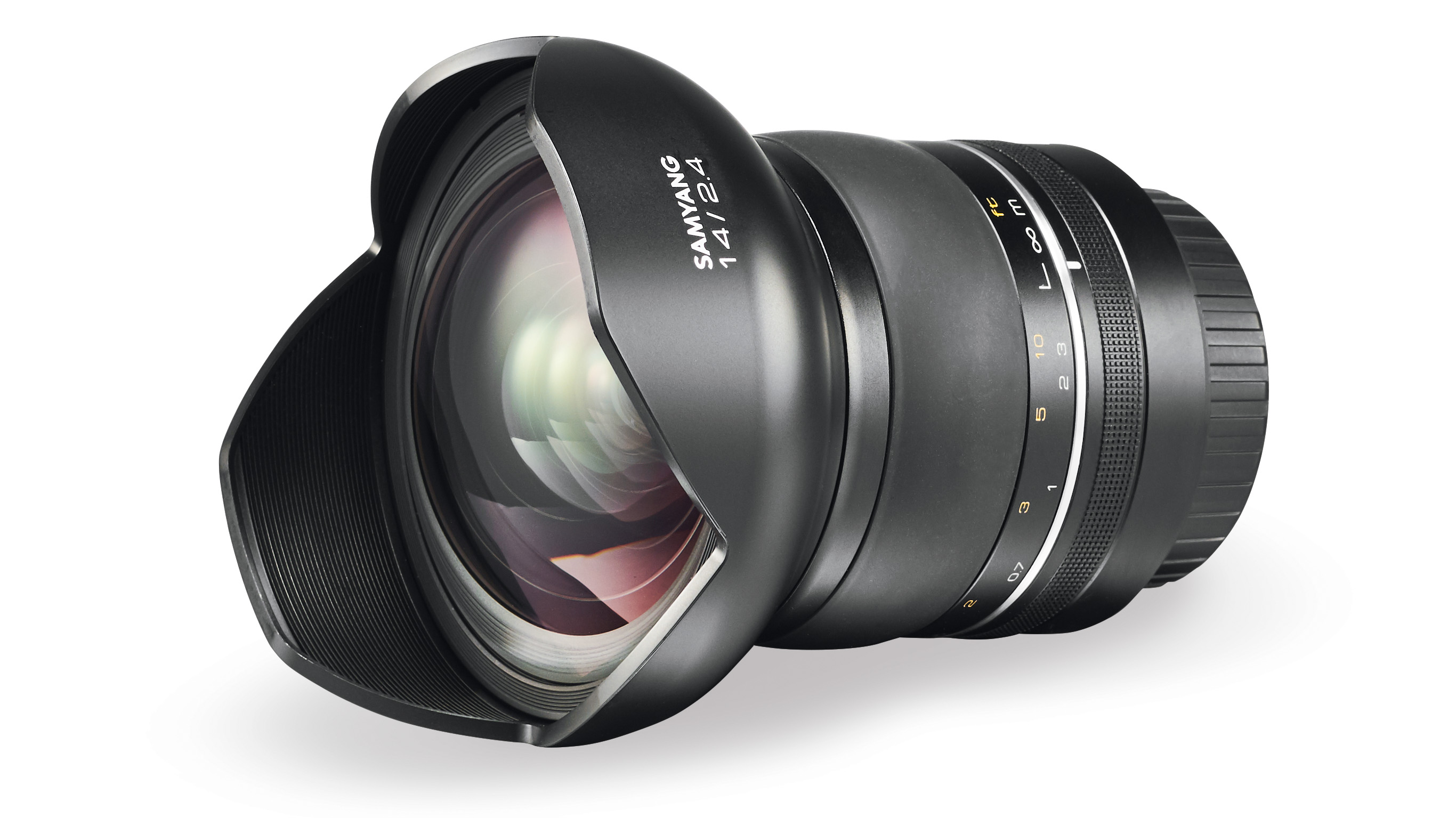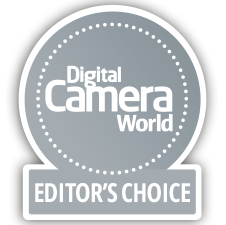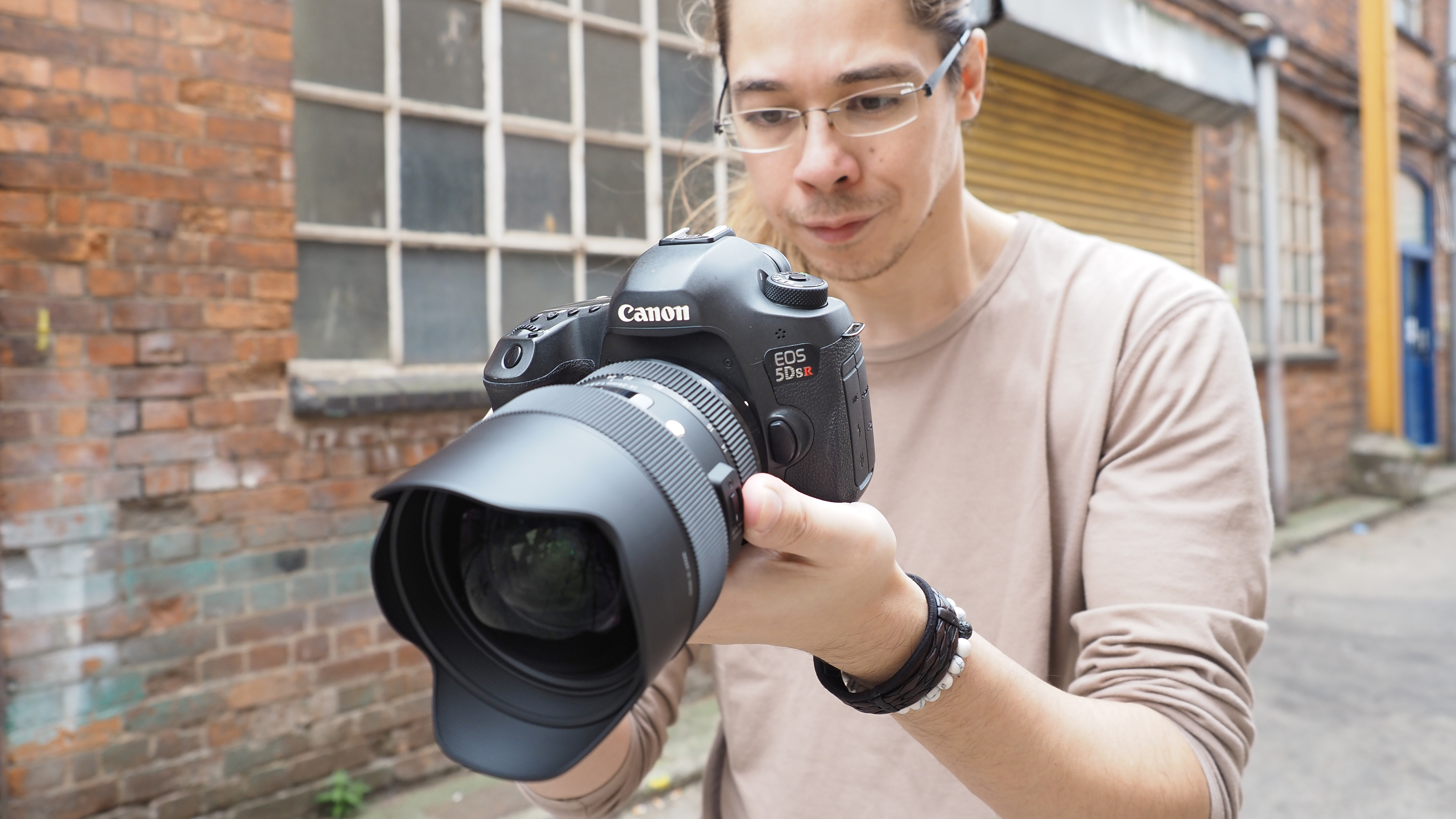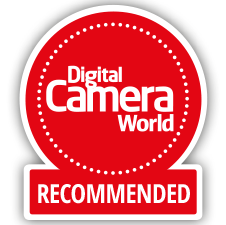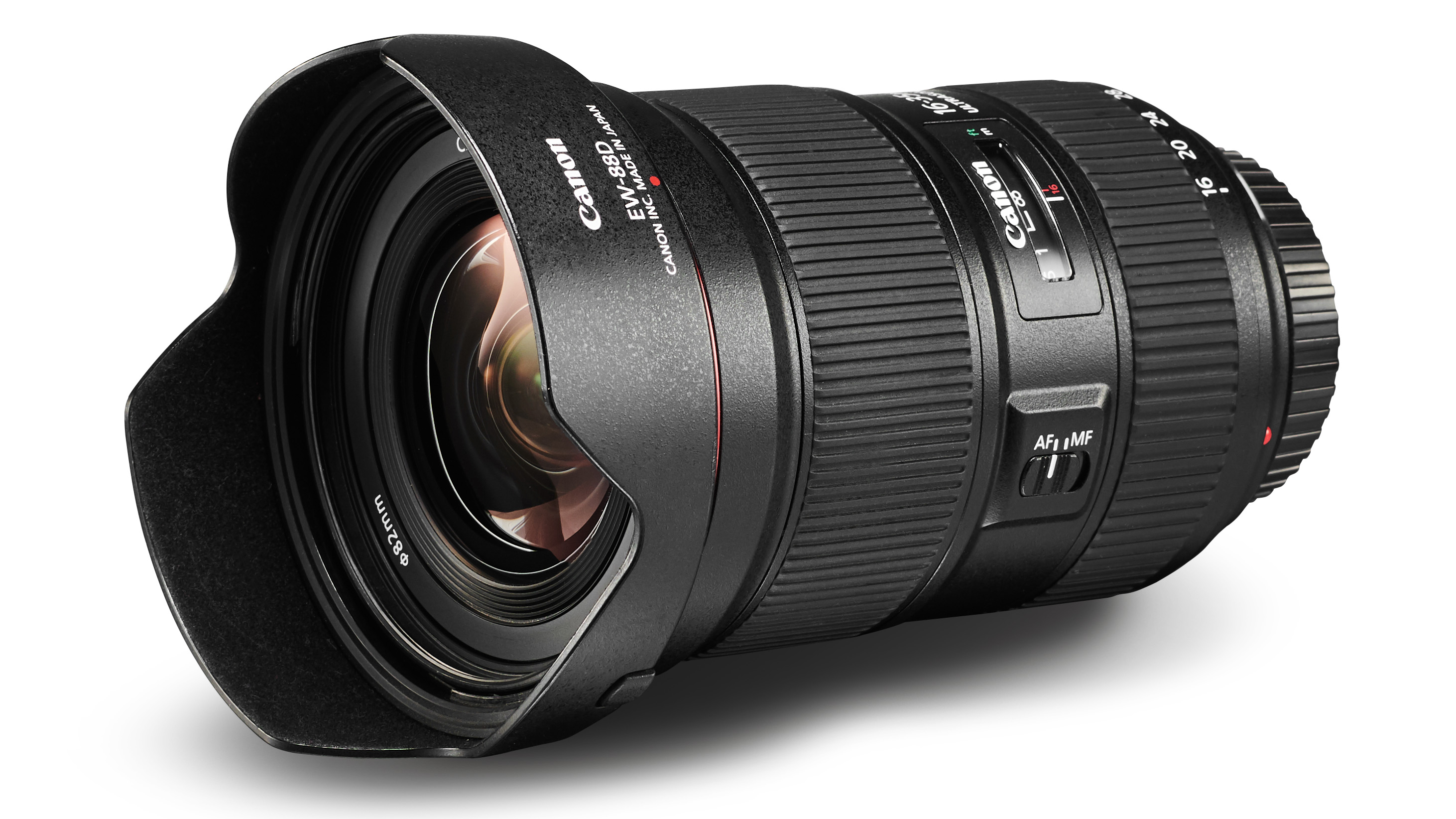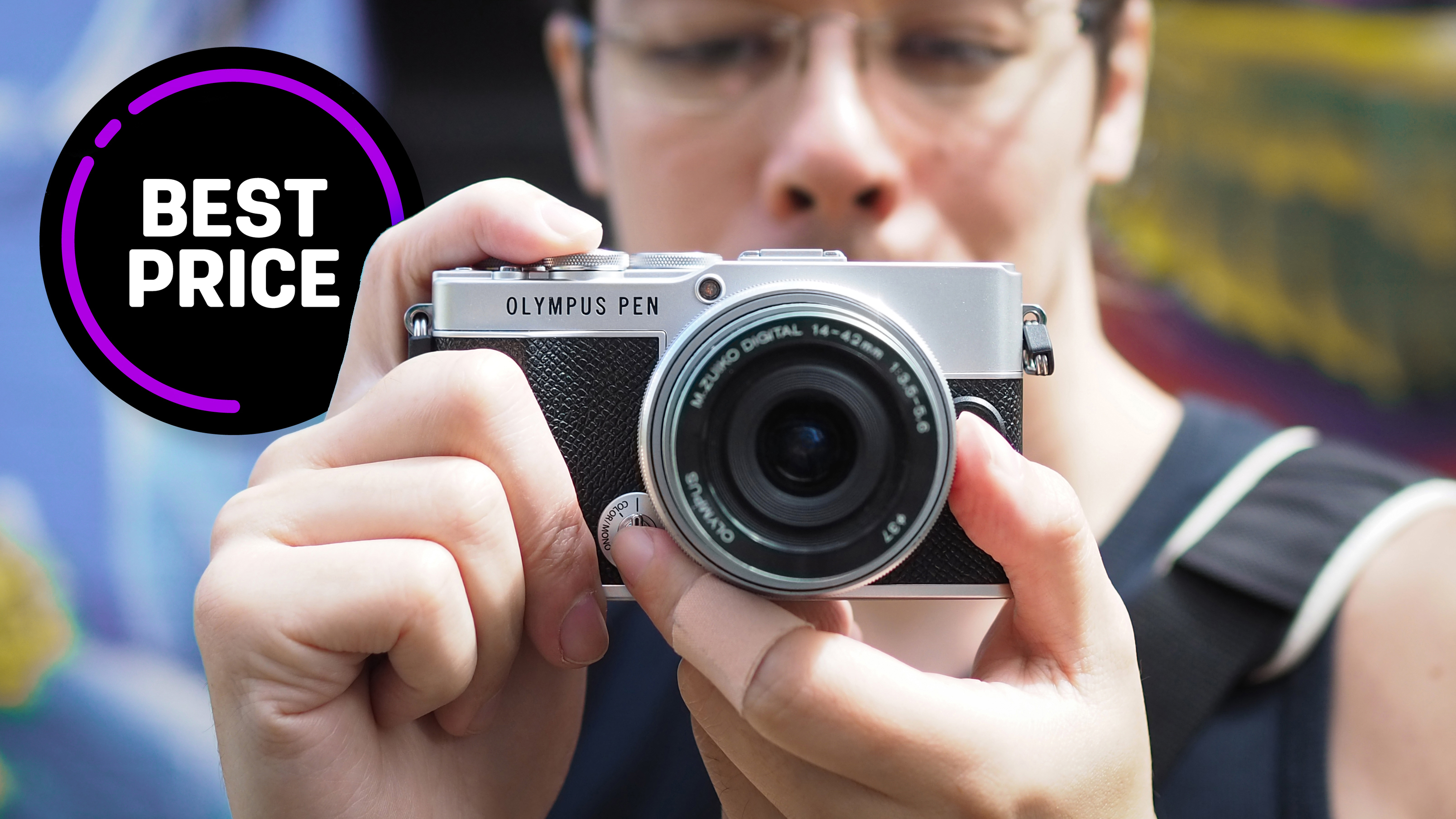The best lenses for astrophotography in 2026: fast, wide glass to capture night skies
Join me as I pick the best lenses for astro fans shooting a starry sky, to suit a range of cameras and budgets
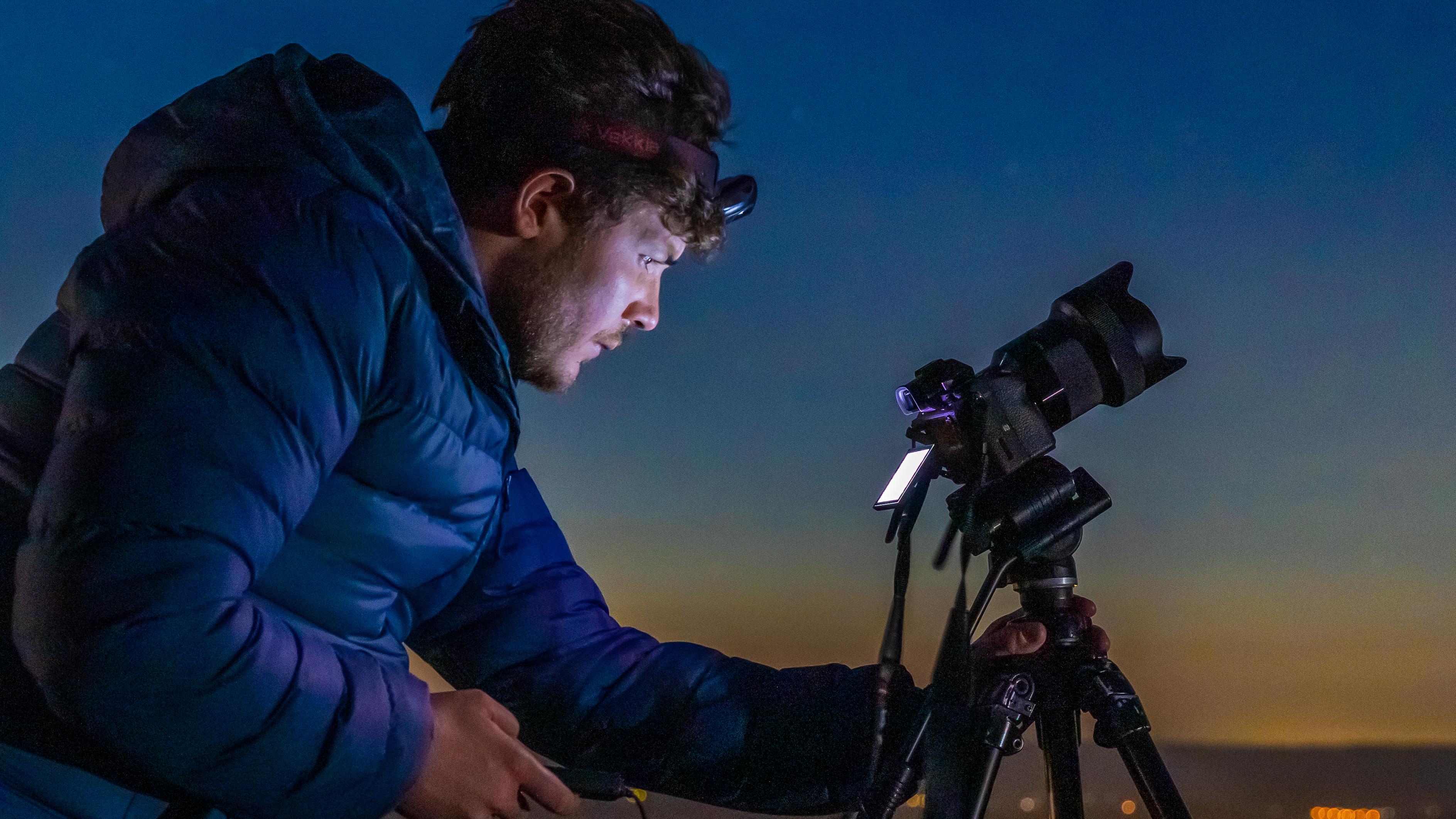
The best camera deals, reviews, product advice, and unmissable photography news, direct to your inbox!
You are now subscribed
Your newsletter sign-up was successful
The best lenses for astrophotography have to fulfil some quite specific requirements. A wide-angle of view is a must, not only to fit in lots of the night sky, but also to aid the use of slower shutter speeds without ending up with stars smeared across the sky. A fast maximum aperture is also extremely helpful to gather as much light as possible, and you ideally want high-quality optics to keep those stars sharp all the way across the frame.
No small order then! Fortunately, manufacturers have developed lenses that are up to the challenge, and this list includes the best I've tested across all the major mounts. Whether you're using a DSLR or a mirrorless camera, there should be at least one great lens here for you, and if you need more help understanding the key criteria for an astro lens, take a look at our astrophotography tips and how-to guide.
There's plenty more kit that is essential for astrophotography. Obviously, one of the cameras for astrophotography is a must, but you'll also need one of the best tripods to ensure you have a steady shooting platform. Here, though, we're talking lenses, so let's take a look at the best lenses for astrophotography for every major camera system.
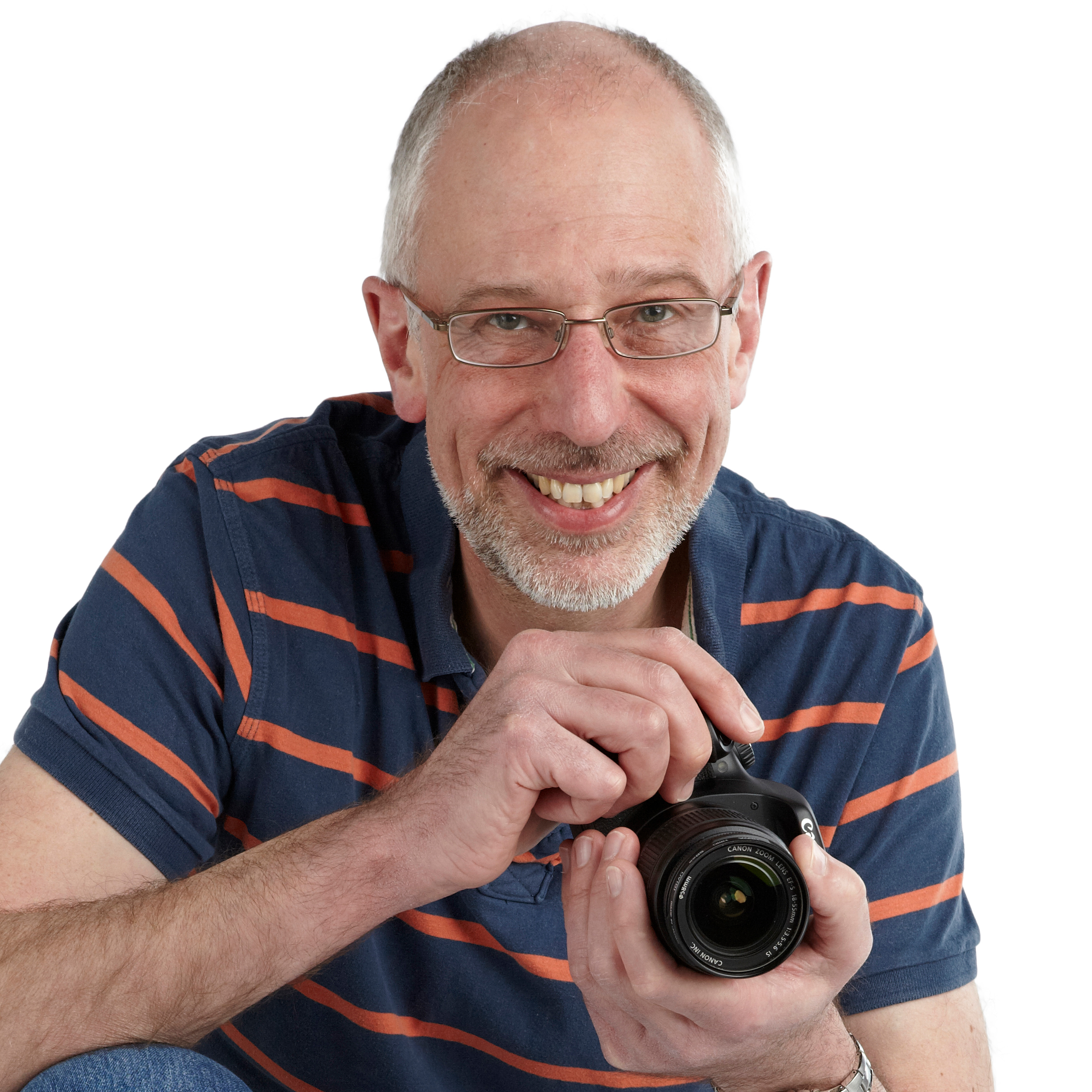
Matthew Richards is a photographer and journalist who has spent years using and reviewing all manner of photo gear. He is Digital Camera World's principal lens reviewer – and has tested more primes and zooms than most people have had hot dinners! Here, he's picking the lenses that have most impressed him for astrophotography.
Best lenses for astrophotography
Why you can trust Digital Camera World
Best Canon RF
Specifications
Reasons to buy
Reasons to avoid
If you've got an EOS R camera and want to do astrophotography, this is the dedicated lens for you. It's no surprise when you look at the focal range and maximum aperture available to find out that this is a big and heavy lens. It just about balances okay on one of Canon's mirrorless cameras, but it should be less of an issue for astrophotographers. A nice touch is the separate hood, which means it's possible to attach filters if desired via an 82mm filter thread, while there's also built-in IS.
We found the focusing performance of the Canon RF 15-35mm f/2.8L IS USM to be brilliant in testing, with the lens enjoying a Nano Ultrasonic AF system for virtually silent focusing. Oh, and did I mention that stellar image quality? A brilliant lens, but it does come with a hefty price tag.
If you prefer the idea of a prime lens, I'd recommend taking a look at the Canon RF 20mm f/1.4L VCM, which is the widest professional prime for the RF system. We haven't finished our testing yet, but pre-lab results have been impressive so far (though once again, it's not a cheap lens).
See our full Canon RF 15-35mm f/2.8L IS USM review
Features ★★★★★ | Brilliant design meets optical superiority. | Row 0 - Cell 2 |
Design ★★★★★ | Brilliant to use, and I love the customizable control ring. | Row 1 - Cell 2 |
Performance ★★★★☆ | Distortion-free and incredible sharp. | Row 2 - Cell 2 |
Value ★★★☆☆ | A very high price tag makes it firmly for professionals. | Row 3 - Cell 2 |
Best Nikon Z
Specifications
Reasons to buy
Reasons to avoid
The Nikkor Z 14-24mm f/2.8 S is Nikon's latest effort to attract pros to the Z mount system. Completing the holy trinity of fast f/2.8 S-line zooms, it slots in neatly next to the Nikkor Z 24-70mm f/2.8 S and promises uncompromising wide-angle image quality. The 16-element optical stack includes 3 aspherical elements, along with Nikon’s Nano Crystal and ARNEO Coat for reducing ghosting and flare.
As you might expect, Nikon went all guns blazing with the design of this lens to try and sway photographers to the Z mount. As such, the build, handling, and image quality of this lens are all absolutely top-tier. Copiously weather-sealed, with scintillating sharpness, this is a lens for those who demand the best (and it comes with the kind of price tag you might expect).
The front element gets a smear-resistant fluorine coating, and the lens is fully weather sealed. Add the included HB-98 lens hood and huge 112mm filters can be used – Nikon offers Neutral Color and Circular Polarizer options.
See our full Nikon Z 14-24mm f/2.8 S review
Features ★★★★★ | A fully featured lens with an abundance of controls. | Row 0 - Cell 2 |
Design ★★★★★ | Comprehensively weather-sealed and surprisingly lightweight. | Row 1 - Cell 2 |
Performance ★★★★★ | Absolutely sublime levels of sharpness. | Row 2 - Cell 2 |
Value ★★★☆☆ | A spectacular lens, but you really do pay for the privilege. | Row 3 - Cell 2 |
Best Sony E
Specifications
Reasons to buy
Reasons to avoid
Only until recently, the FE 12-24mm f/4 G has been Sony’s most wide-angle zoom. However, with a constant maximum aperture of f/4, it isn't suited to astrophotography. Step forward the Sony FE 12-24mm f/2.8 G Master. We tested out this lens both in our lab and out in the field, and completely fell in love. Its impeccable image quality and ultra-wide viewing angle makes it an outstanding choice for astrophotography.
Boasting a diagonal coverage up to an incredible 122 degrees, while also delivering a fast and constant f/2.8 aperture, this combination makes it the world’s fastest lens in its class. There's no getting away from the hefty price, but this is a lens that delivers supreme image quality, while the AF system is quick, smooth and quiet. Factor in the lovely handling and rock-solid build quality and this is a stunning lens.
See our full Sony FE 12-24mm f/2.8 G Master review
Features ★★★★★ | A high-quality ultra-wide lens, terrific inside and out. | Row 0 - Cell 2 |
Design ★★★★☆ | Well-refined handling in a weatherproof body. | Row 1 - Cell 2 |
Performance ★★★★★ | An outstanding, high-performance zoom. | Row 2 - Cell 2 |
Value ★★★☆☆ | A very high price, as is typical for G Master. | Row 3 - Cell 2 |
Best L-mount
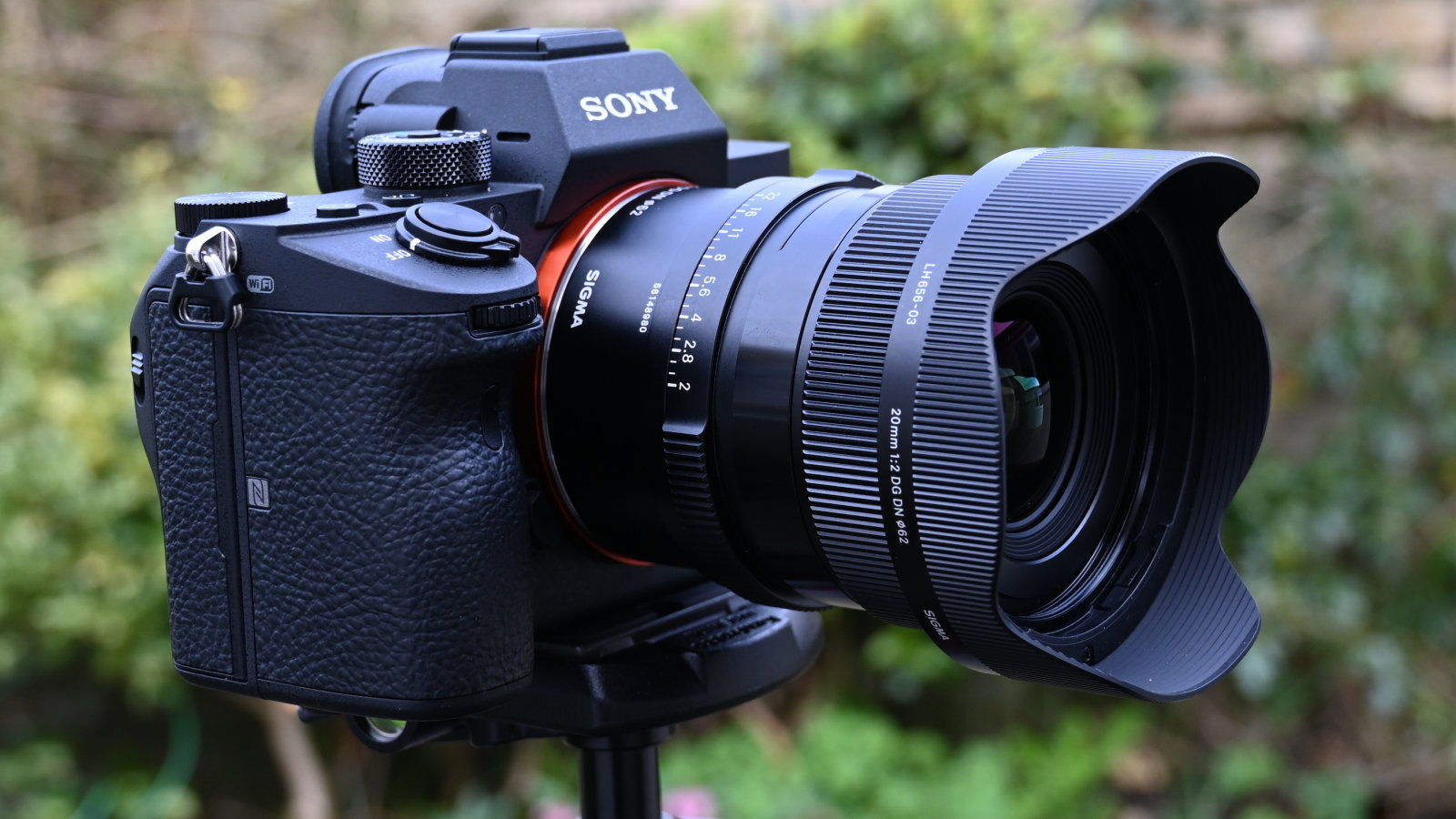
Specifications
Reasons to buy
Reasons to avoid
This is one of the wide-angle options in Sigma's growing range of I-series primes for Sony E-mount and Leica L-mount, and it's a solid choice for astro work. The optical path of the lens is particularly impressive, especially considering how small the lens is – 13 elements are somehow crammed in there, including three high-precision glass-molded aspherical elements, one SLD (Special Low Dispersion) element and one FLD (Fluorite Low Dispersion) element. Then there's also Sigma's Super Multi-Layer Coating and Nano Porous Coating.
Therefore, as you might expect, the Sigma 20mm F2 DG DN | C performed very well in our testing, delivering excellent sharpness. We found that vignetting was a little severe when used at wider apertures than f/5.6, and there is some distortion that will require cleanup in software, but nothing ruinous.
The 'C' or 'Contemporary' designator means it's a lightweight and portable lens – though this doesn't matter as much for astrophotography as it does for other disciplines, as you're always going to be tethered to your tripod. Still, the metal construction is pleasingly solid, and the addition of an aperture ring is welcome.
See our full Sigma 20mm F2 DG DN | C review
Features ★★★★☆ | High-performance coatings ensure top-notch light transmission. | Row 0 - Cell 2 |
Design ★★★★☆ | A lovely metal build that feels premium to use. | Row 1 - Cell 2 |
Performance ★★★★☆ | Generally good, though some vignetting at wide apertures. | Row 2 - Cell 2 |
Value ★★★★☆ | Very good value compared to the high-end lenses. | Row 3 - Cell 2 |
Best MFT
Specifications
Reasons to buy
Reasons to avoid
The 2x crop factor of Micro Four Thirds cameras can make it tricky to find a high-quality lens that's wide enough for astrophotography; however, we really rate this Olympus lens, the M.ZUIKO DIGITAL ED 7-14mm 1:2.8 PRO. Mounted on an MFT body, it provides an equivalent focal range of 14-28mm, and thanks to its bright f/2.8 aperture that runs through the zoom range, it is an excellent choice for astro work.
In our review, the lens achieved impressive results throughout our lab tests, delivering excellent sharpness even when used wide open. It's well built too, with enough weather-sealing to handle the long nights it'll spend outside while you're busy shooting the stars. It's on the expensive side for an MFT lens, and arguably on the heavy side too, but since you won't be shooting handheld, the latter shouldn't be too much of an issue.
See our full Olympus M.ZUIKO DIGITAL ED 7-14mm 1:2.8 PRO review
Features ★★★★☆ | A well-featured lens that is your best astro option for MFT. | Row 0 - Cell 2 |
Design ★★★★☆ | Lovely metal barrel and premium feel, though it's heavy. | Row 1 - Cell 2 |
Performance ★★★★☆ | Very good sharpness even at f/2.8. | Row 2 - Cell 2 |
Value ★★★★☆ | On the expensive side, though not the priciest. | Row 3 - Cell 2 |
Best Fujifilm X
Specifications
Reasons to buy
Reasons to avoid
In 2019, Fujifilm debuted its widest lens yet, the Fujifilm 8-16mm f2.8 XF R LM WR Fujinon Lens. Its size and price tag put it firmly in the same camp as the pro optics; weighing more than 800g, when it's paired with one of the larger cameras like the X-T5, this lens makes for a setup that calls the mirrorless reputation for lightness into question. Don't get us wrong though, this is a fantastic lens, as we noted in our full review.
A sophisticated optical construction ensures pin-sharp image quality, while it also has an extra f-stop over its nearest comparison point in the X stable, the 10-24mm (see below). It's worth being aware that the lens lacks optical image stabilisation of any kind, and its wide front makes it incompatible with screw-in filters. Nevertheless, this is as wide as ultra-wide zooms get, with a full frame equivalent focal length of just 12mm at its widest setting!
See our full Fujinon XF 8-16mm f/2.8 R LM WR review
Features ★★★★☆ | The widest zoom in the Fujifilm stable | Row 0 - Cell 2 |
Design ★★★★☆ | A hefty boy, weather-sealed and beautifully built. | Row 1 - Cell 2 |
Performance ★★★★★ | Superb image quality, little to no visible distortion. | Row 2 - Cell 2 |
Value ★★★☆☆ | Fuji lenses are already expensive, and this is at the upper end. | Row 3 - Cell 2 |
Best cheap lens for astrophotography
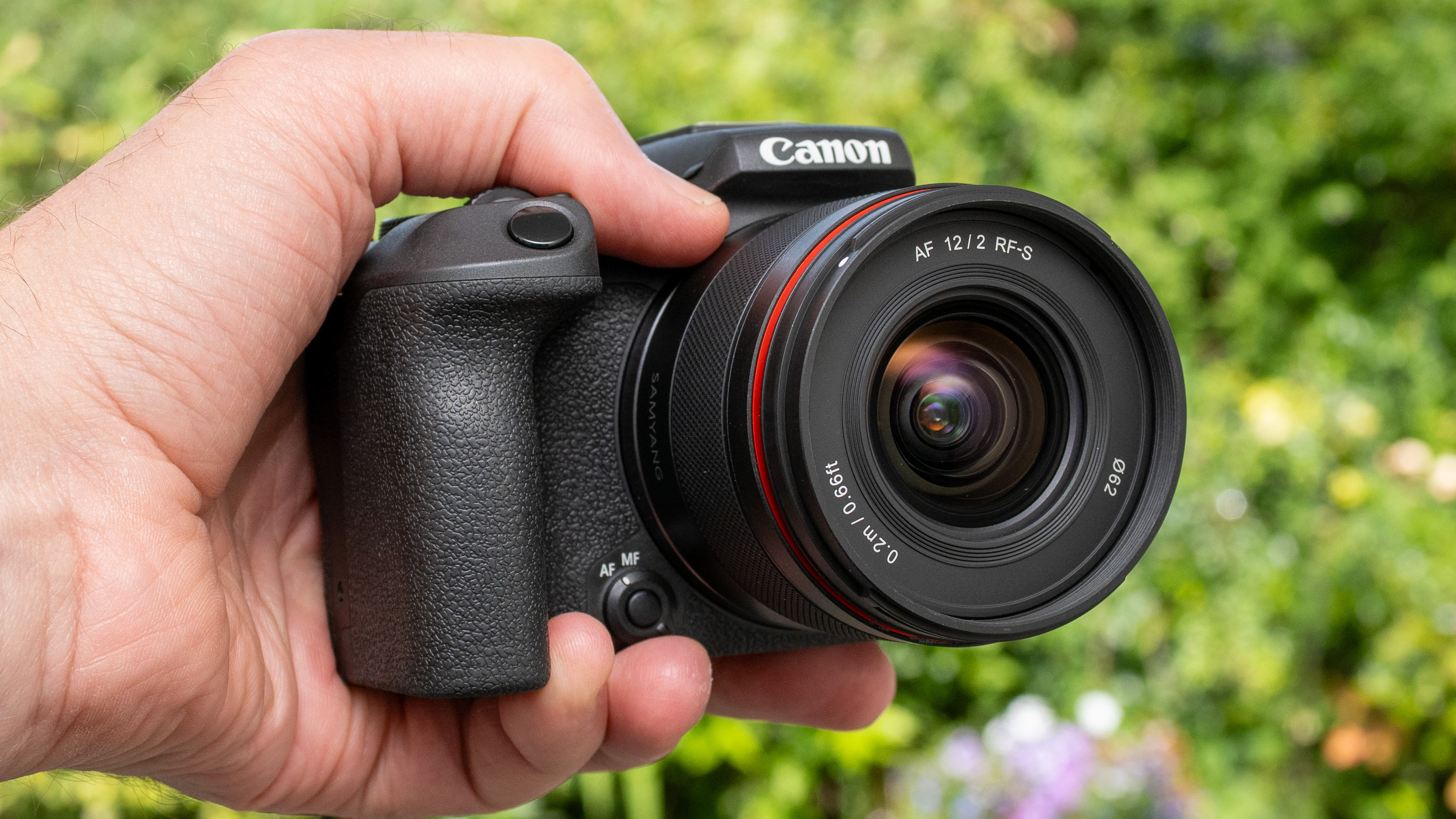
Specifications
Reasons to buy
Reasons to avoid
It can be tricky to find a good astro lens on a budget. If you're a Canon RF-S, Fujifilm X, or Sony E (APS-C) user, the LK Samyang / Rokinon AF 12mm f/2 lens is a wonderfully affordable option, going big on angle of view and adding in handy extra features like weather resistance. Producing an equivalent focal length of around 20mm, varying a little depending on which system you use, it's a more unique proposition for some cameras than others. Canon doesn't have any equivalent RF-S primes on the market right now, while Fujifilm and Sony have a few more alternatives. At a recommended price of around $449 / £335, it's not the cheapest lens ever made, but it is definitely cheap by astrophotography standards.
Performance-wise, the lens delivers on sharpness. It drops off a little at the F2 setting you'll likely be using for astro, but it's still well within tolerances. One thing that I was particularly impressed by in our review was the minimizing of chromatic aberrations, distortion, and sagittal coma, the latter of which is particularly relevant for astrophotography as it's what causes stars to take on irregular shapes towards the edges of the frame. This is thanks to a sophisticated optical construction of 12 elements in 10 groups, including one aspherical, one hybrid-aspherical and three ED (Extra-low Dispersion).
See our full Samyang AF 12mm f/2.0 Sony E-mount review
See our full LK Samyang AF 12mm f/2 Canon RF-S-mount review
Features ★★★★☆ | Well-featured for the price, with a focus mode switch, removable hood and filter thread. | Row 0 - Cell 2 |
Design ★★★★★ | Remarkably compact for a high-quality, weather-sealed wide-angle. | Row 1 - Cell 2 |
Performance ★★★★☆ | Generally very good, with some sharpness drop-off at f/2. | Row 2 - Cell 2 |
Value ★★★★☆ | Excellent value for money, considering its high performance. | Row 3 - Cell 2 |
Best DSLR astro prime
Specifications
Reasons to buy
Reasons to avoid
From Korean manufacturer Samyang’s XP stable of premium manual-focus prime lenses for Canon and Nikon full-frame cameras, this 14mm f/2.4 is ideal for astrophotography. The lens is sold as the Rokinon SP 14mm f/2.4 in North America.
The high-quality glass is neatly wrapped in a really solid casing. The rubberized manual focus ring gives a very assured grip and has a long rotational travel with a fluid feel. There’s no weather-seal ring on the mounting plate to guard against the ingress of dust and moisture. To be fair, though, if you’re photographing the Milky Way, you’ll need clear, dry, and dust-free conditions.
In our review, we were hugely impressed by how well this lens maintained its image quality when wide open, which is hugely important for astrophotography. It's markedly better than Irix's rival 15mm f/2.4 Blackstone lens or a Sigma 14mm f/1.8 DG HSM Art. Sharpness is both very good and extremely consistent across the image frame. Chromatic aberrations are negligible, while coma and astigmatism are very minimal. Barrel distortion can be visible at close focus distances, but that's not an issue for astrophotography.
Maintaining excellent image quality at a lens's widest aperture for astrophotography is a real challenge in an ultra-wide-angle optic, but this Samyang does exactly that – an admirable achievement.
See our full Samyang/Rokinon XP 14mm f/2.4 review
Features ★★★★☆ | A straightforward but well-functioning lens, delivering high image quality. | Row 0 - Cell 2 |
Design ★★★☆☆ | Lacks weather sealing, but is otherwise nicely built. | Row 1 - Cell 2 |
Performance ★★★★☆ | Very good sharpness, with minimal coma and astigmatism. | Row 2 - Cell 2 |
Value ★★★☆☆ | Sits comfortably in the mid-range. | Row 3 - Cell 2 |
Best DSLR astro zoom
Specifications
Reasons to buy
Reasons to avoid
Available in Canon EF and Nikon F mounts, this Sigma lens is up against own-brand legends like the Canon EF 16-35mm f/2.8L USM III and the Nikkor AF-S 14-24mm f/2.8G ED. It beats both of them for image quality and price. Build quality and handling are excellent, with a full set of weather-seals and a fluorine coating on the front element. The lens is also compatible with Sigma’s optional USB Dock for customisation and firmware updates.
In our review, we found we could produce images with this lens that were nothing short of outstanding. Even at the shortest focal length with the widest aperture, sharpness is excellent across the entire frame, and the lens does very well to retain excellent corner sharpness at wide apertures.
Vignetting is remarkably minimal, and though barrel distortion is prominent at close range, it's negligible for astrophotography. Lateral and spherical aberrations are also very well controlled.
For full-frame Canon and Nikon DSLRs, this is simply the best ultra-wide, fast-aperture zoom lens on the market, and not just for astrophotography.
See our full Sigma 14-24mm f/2.8 DG HSM | A review
Features ★★★★☆ | Not as big on viewing angle as rivals, but performance is stellar. | Row 0 - Cell 2 |
Design ★★★★★ | Weather-sealed, wonderfully engineered and smooth to operate. | Row 1 - Cell 2 |
Performance ★★★★★ | Stellar image quality, some of the best across DSLR mounts. | Row 2 - Cell 2 |
Value ★★★★☆ | Not cheap, but this is a very impressive lens indeed. | Row 3 - Cell 2 |
Best Canon EF
Specifications
Reasons to buy
Reasons to avoid
If you own a full-frame Canon DSLR, this is Canon’s most ideal zoom lens for astrophotography. It may not be as wide-angle as the company's EF 11-24mm f/4L USM, but it's an all-important f-stop faster. The maximum viewing angle is admittedly slightly less than the 14mm and 15mm full-frame on this list, equating to 108 degrees compared with 114 or 110 degrees.
This lens gains a large and complex double-surface GMO (Glass Moulded) aspherical element at the front, adding to two UD (Ultra-low Dispersion) elements and a ground aspherical element at the rear. Upgraded, high-tech coatings include both SWC (SubWavelength Coating) and ASC (Air Sphere Coating) for greater resistance to ghosting and flare. Weather-resistant attributes are extended to include moisture- and grease-repellent fluorine coatings on the front and rear elements. The lens is quite long at 128mm, considering that it doesn’t have a built-in fixed hood. Unlike with some rival lenses, the separate bayonet-fit hood enables the easy attachment of filters via an 82mm thread. Build quality is up to Canon’s usual robust L-series standards.
We tested the Canon EF 16-35mm f/2.8L USM III in our lab, and found sharpness and contrast to be exceptionally impressive across the zoom range. The Mk III has much-improved corner sharpness compared with the previous edition, but still lags behind the competing Sigma 14-24mm zoom. There’s very little spherical aberration at f/2.8, but coma and astigmatism can be quite visible near the extreme corners of the frame.
See our full Canon EF 16-35mm f/2.8L USM III review
Features ★★★★☆ | An impressive pro zoom, though not as wide as the Sigma. | Row 0 - Cell 2 |
Design ★★★★☆ | Big and heavy, but feels premium and is weather-sealed. | Row 1 - Cell 2 |
Performance ★★★★☆ | Very impressive (though again not quite as good as the Sigma 14-24mm). | Row 2 - Cell 2 |
Value ★★★☆☆ | Quite pricey, though if you simply must have Canon-brand gear... | Row 3 - Cell 2 |
Lab data and comparisons
The graphs below show the comparative performance of the lenses in this guide, based on our in-house lab tests. The Sigma, Sony, and Nikon lenses lead the group for average sharpness scores, but the Samyang does particularly well to retain sharpness out to the edges and corners of the frame in astro shooting, as well as eliminating coma and flare. The Samyang and both Sigma prime and zoom lenses in the group rely more heavily than most on correction for distortion.
Scores for sharpness and color fringing are averaged from data taken across the entire image frame, from the center to the edges and corners, throughout the aperture range. For zoom lenses, the scores are also averaged from data measured at all marked focal lengths, and the same applies to distortion. Bear in mind that these average values don't fully reflect specific areas of performance. For example, a zoom lens might have noticeable barrel and pincushion distortion at its shortest and longest focal lengths, respectively, which tends to average out when looking at the data overall. For more detailed graphs of each lens's performance, which give the full picture, check out the graphs in our full standalone lens reviews.
How to choose the best lens for astrophotography
If you're picking an astrophotography lens, a wide-angle is almost certainly going to be the way to go. A lens with a nice, wide field of view is useful not only for getting as much of the night sky in the frame as possible, but also for minimizing the "trailing" effect of stars. Astrophotography requires long shutter speeds, and assuming that you haven't mounted your camera and lens to a dedicated equatorial mount, too long a shutter speed will cause the stars to trail and blur across the sky as the Earth rotates. The shorter your focal length, the more leeway you have before this starts to happen.
This means that something else that can help is having a nice, wide maximum aperture, allowing the lens to drink in as much light as possible. You'll be able to use shorter shutter speeds at f/1.4 than you would at f/2.8; however, you also need to balance this with the fact that you'll get better sharpness when you stop down.
For astrophotography lenses, it's especially important to look to minimize different types of distortion and aberration, all the way to the edges of the frame. Too much coma and astigmatism will give an irregular shape to stars, so it's a higher priority than usual to choose lenses that are as free as possible from these types of distortion. These are some of the many factors we assess when we test lenses, which you can read more about below.
How we test the best lenses for astrophotography
We test lenses using both real-world sample images and lab tests. Our lab tests are carried out scientifically in controlled conditions using the Imatest testing suite, which consists of custom charts and analysis software that measures resolution in line widths/picture height, a measurement widely used in lens and camera testing. We find the combination of lab and real-world testing works best, as each reveals different qualities and characteristics.
Astrophotography lenses: frequently asked questions
What focal length is best for astrophotography?
Various focal lengths can be great for astrophotography, and which one is right for you will likely come down to personal preference. However, as a general rule, you are looking for a wide-angle to fit in as much of the sky as possible and minimize star-trailing. Generally, you'll be looking at focal lengths between about 10mm and no more than 35mm on full-frame. Remember, if you're using a smaller sensor size, you'll need to calculate the effective focal length using the crop factor (1.5x or 1.6x for APS-C; 2x for Micro Four Thirds), meaning you'll likely need the widest lens you can get your hands on.
Is f/2.8 enough for astrophotography?
While you naturally want as much light as possible when shooting at night, you don't necessarily always want to be shooting at a lens's maximum aperture for the simple reason that sharpness tends to suffer when a lens is wide-open, and sharpness is critical in astro. An f/2.8 lens will therefore be more than acceptable in getting great astro shots, as you'll be able to see from the fact that we've included plenty of them in this guide. Faster lenses, however, mean that you don't have to increase ISO so much – and therefore will tend to allow you to produce images with less noise.
What is the 500 rule in astrophotography?
The 500 rule is a simple means of roughly calculating how long an exposure you can get away with taking of the night sky before star trails start to appear. Because this is largely affected by the focal length of your lens, the formula works by dividing the number 500 by your lens's focal length (in millimeters). The answer is the number of seconds you can expect to open the shutter for before star trails appear
So, if we were using the Samyang XP 14mm f/2.4, we would divide 500 by 14 to reach a result of 35.71 – about 35 seconds before we get perceptible star trails.
The best camera deals, reviews, product advice, and unmissable photography news, direct to your inbox!
Matthew Richards is a photographer and journalist who has spent years using and reviewing all manner of photo gear. He is Digital Camera World's principal lens reviewer – and has tested more primes and zooms than most people have had hot dinners!
His expertise with equipment doesn’t end there, though. He is also an encyclopedia when it comes to all manner of cameras, camera holsters and bags, flashguns, tripods and heads, printers, papers and inks, and just about anything imaging-related.
In an earlier life he was a broadcast engineer at the BBC, as well as a former editor of PC Guide.
